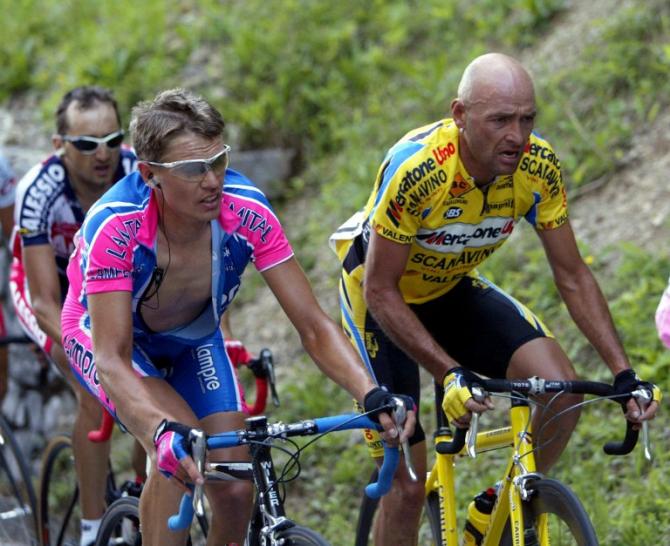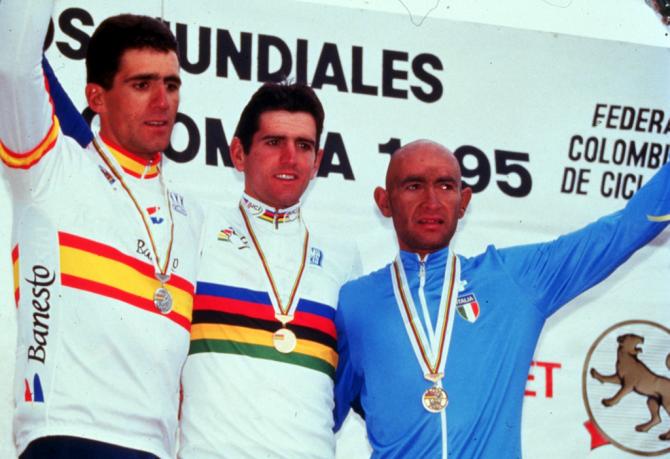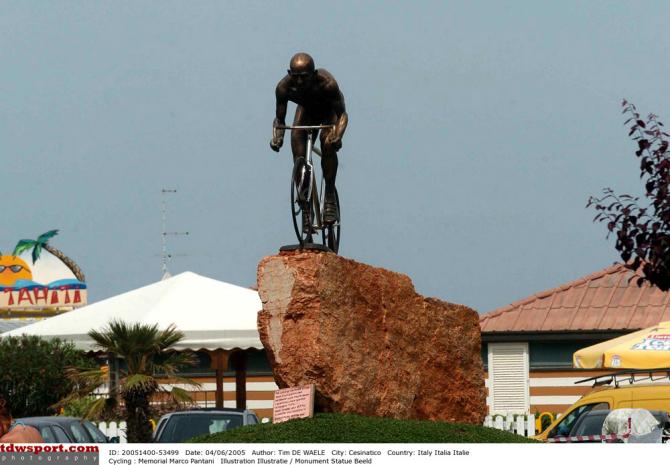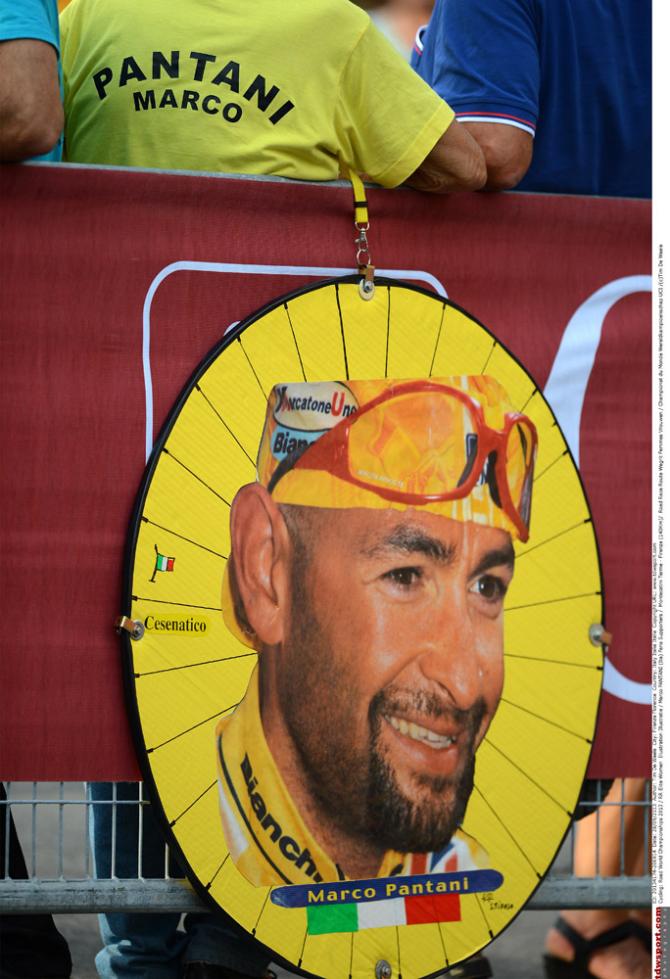Medical report backs book claiming Pantani wasn't murdered
Pantani injuries not due to fight, consultant finds




The presentation of Andrea Rossini's new book into the death of Marco Pantani has sparked a series of events that have left little doubt that the former Tour de France winner died of a cocaine overdose and was not murdered as the mainstream Italian media has widely suggested in recent months.
Hours before the Monday evening book presentation in Rimini, it emerged that the specialist autopsy consultant, Professor Franco Tagliaro – who was chosen by the Italian police, had confirmed that the injuries on Pantani's body were not due to a fight with other people. Along with other evidence and witness statements, this demolishes the theory that Pantani was murdered by being forced to drink cocaine that had been diluted in a bottle of water.
Tagliaro sent his preliminary findings in an email to the chief investigating magistrate in Rimini, Paolo Gengarelli. Tagliaro's findings reflect those of Professor Giuseppe Fortuni's original autopsy, which ruled out the theory that Pantani's injuries were caused by any kind of struggle. Tagliaro ruled out the possibility of Pantani being involved in a fight due to the absence of hand injuries that would have occurred in an active defence or passive defence.
The verdict by Tagliaro and the sheer details in Rossini's book are now likely to change the direction of the private investigation, which was sparked by Tonina Pantani and carried out by lawyer Antonio de Rensis.
De Rensis is expected to bring further evidence to the attention of the police in coming days but faces an uphill struggle to back up claims that Pantani was murdered. Pantani's mother has always looked for someone or something to blame for the death of her son, refusing to accept that he took his own life by overdosing on cocaine.
Pointing the finger at the Italian media
During the presentation in Rimini, Rossini again explained his motives for writing is book, insisting he is trying to reveal the truth. He clashed with fellow journalist Francesco Ceniti of Gazzetta dello Sport, who has focused on many of the doubts raised by the Pantani family in his reporting and who has so far given little consideration to Rossini's explanations. De Rensis and Pantani's mother opted not to attend the book presentation. In a Facebook message, Tonina Pantani wrote: "He (Rossini) thinks I've got time to throw away to go and listen to his lies but I've got more important things to do."
Get The Leadout Newsletter
The latest race content, interviews, features, reviews and expert buying guides, direct to your inbox!
"Andrea and I are not in different positions, we're both working as journalists and both are asking questions and trying to find answers," Ceniti argued.
"I wrote the book as a fan of Pantani. Like millions of people in Italy, I loved how he attacked in the mountains. He was exciting and there have been very few riders like him ever since. The contents of the book became something more serious when the family started a private investigation. The fact that the police accepted to re-open the case and question people means that there could be something to it.
"I'm not afraid to say that some details in Andrea's book have convinced me, some no, others partially. I'm not someone who specifically believes that there was a plot against Pantani, and I'm saddened to read that the Rimini police are considering legal action for defamation. I think it's right to ask questions. I think it's good for everyone, otherwise there will be questions on every anniversary of Pantani's death."
Rossini pointed out that most of the Italian media repeated every word of Ceniti's reporting in Gazzetta dello Sport, thus massively swaying public opinion about Pantani's death.
"It was wrong to write 'Pantani was killed'. In Italy a lot of people have believed that. But it was never that clear, never proven," Rossini said.
Matt Rendell is translating Rossini's book into English and plans to update his own detailed Pantani biography, which was first published nine years ago. He also poured scorn on reports in the Italian media that Pantani was killed.
"Pantani was a guy who had a serious problem. He made pleas for help as early as 1999 but never got the help he needed and deserved," Rendell said during the presentation.
"He suffered acute cocaine intoxication six times, and each time he time he behaved in exactly the same way: he locked the door, turned the heating high, closed himself off from the world and consumed huge amounts of cocaine. A friend said he was capable of going through 100-150 grammes of cocaine a week. They saved his life five times but they didn't know where he was the sixth time..."
"What we saw in the Italian media, with journalists crying on television, meant that a lot of Italian people believed that Pantani was somehow killed, even if there wasn't the proof to believe it.
"This book is a great book and I'm proud to be here with a journalist like Andrea Rossini, who is saving the image of Italian journalism."

Stephen is one of the most experienced member of the Cyclingnews team, having reported on professional cycling since 1994. He has been Head of News at Cyclingnews since 2022, before which he held the position of European editor since 2012 and previously worked for Reuters, Shift Active Media, and CyclingWeekly, among other publications.